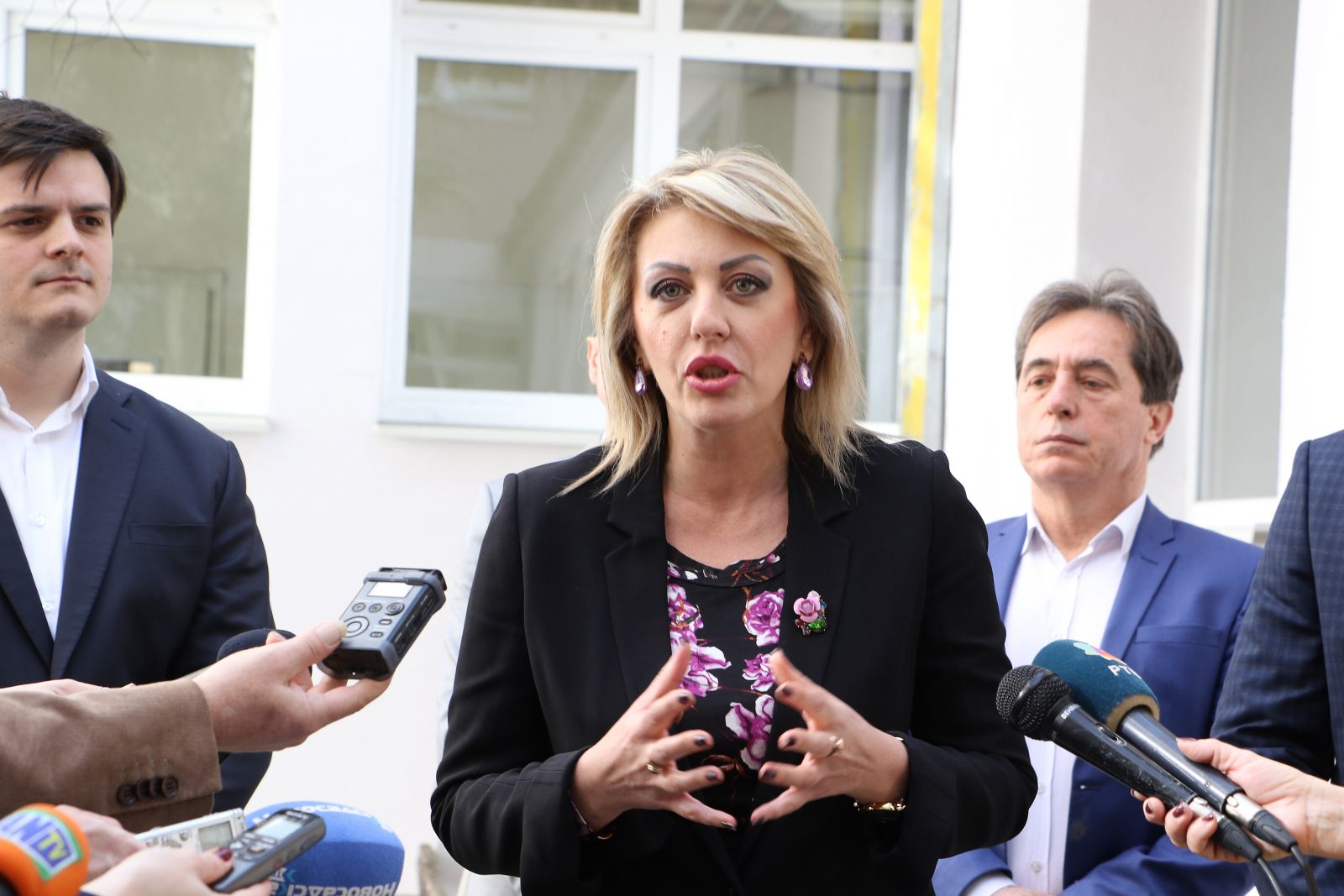
The Energy Efficiency Project, which Technical School "Mileva Marić Ajnštajn" in Novi Sad is implementing within the IPA project Serbia – Croatia, is a good example of how the EU funds should be used, given that Serbia annually receives an average of EUR 200 million in grants therefrom. This is the conclusion of today's visit of Minister of European Integration Jadranka Joksimović, Mayor of Novi Sad Miloš Vučević and Director of the Regional Development Agency "Bačka" Aleksandar Sofić, to this school.
"This project has recognised the basic resource, and that is the youth. The students at this school have a carpentry workshop, where they will produce wood pellets from wood chips instead of wood chips ending up as waste. Wood pellets will further be used for heating, without carbon dioxide emissions, and this will result in lower bills and will establish a new practice in terms of energy efficiency. This is the essence of European integration – the creation of new habits and the establishment of new practices," said Minister Jadranka Joksimović.
She has stressed that it is crucial that Serbia uses grants from EU funds that are available to it as an EU candidate country.
"Serbia annually receives an average of around EUR 200 million in EU grants. The Serbian Government is developing projects in cooperation with local self-governments, non-governmental organisations and other entities, most often in the field of transport, infrastructure, and local economic development, which is also an incentive for the development of small and medium-sized enterprises," said Joksimović.
The Minister has also stressed that regional development is the starting point for any development, and that there are 16 regional development agencies in Serbia.
She has recalled that, within IPA programmes, Serbia is also cooperating with seven neighbouring countries – Romania, Bulgaria, Croatia, Bosnia and Herzegovina, Montenegro, Hungary and North Macedonia.
The example of Technical School "Mileva Marić Ajnštajn" is the best confirmation and proof of how much money we can secure from EU funds if we develop good projects, without burdening the budgets of local self-governments.
"In the last six-seven years, more than EUR 45,600,000 from EU funds has been invested in Novi Sad, of which EUR 30 million for the Žeželj Bridge and over EUR 11 million for the support to housing construction. May this be just the first school with this kind of project, and may other schools follow this example, because we want to have even more children enrolled, modern classrooms, and the development of dual education," said Vučević.
The total value of the Serbia-Croatia IPA Project, through which the energy efficiency project in school "Mileva Marić Ajnštajn" is implemented, amounts to EUR 1,395,000. Both Croatia and Serbia have equally participated in this project.
"The Regional Development Agency "Bačka" and the technical school have withdrawn 55 percent of funds, which is over RSD 90 million, while the remaining funds have been withdrawn by the colleagues from Croatia, who are our partners on this project. The project was launched on 15 July 2017 and will last until 14 January 2020," said Aleksandar Sofić, Director of Regional Development Agency "Bačka".
Director of Technical School "Mileva Marić Ajnštajn", Stanko Matić, has said that the project included a complete renovation of the school's façade, as well as the replacement of 400 windows and the complete carpentry.
The Director of the Regional Development Agency "Bačka" has announced that energy efficiency studies will be prepared for another 11 schools in 11 municipalities where this agency operates.
Source: Tanjug



















